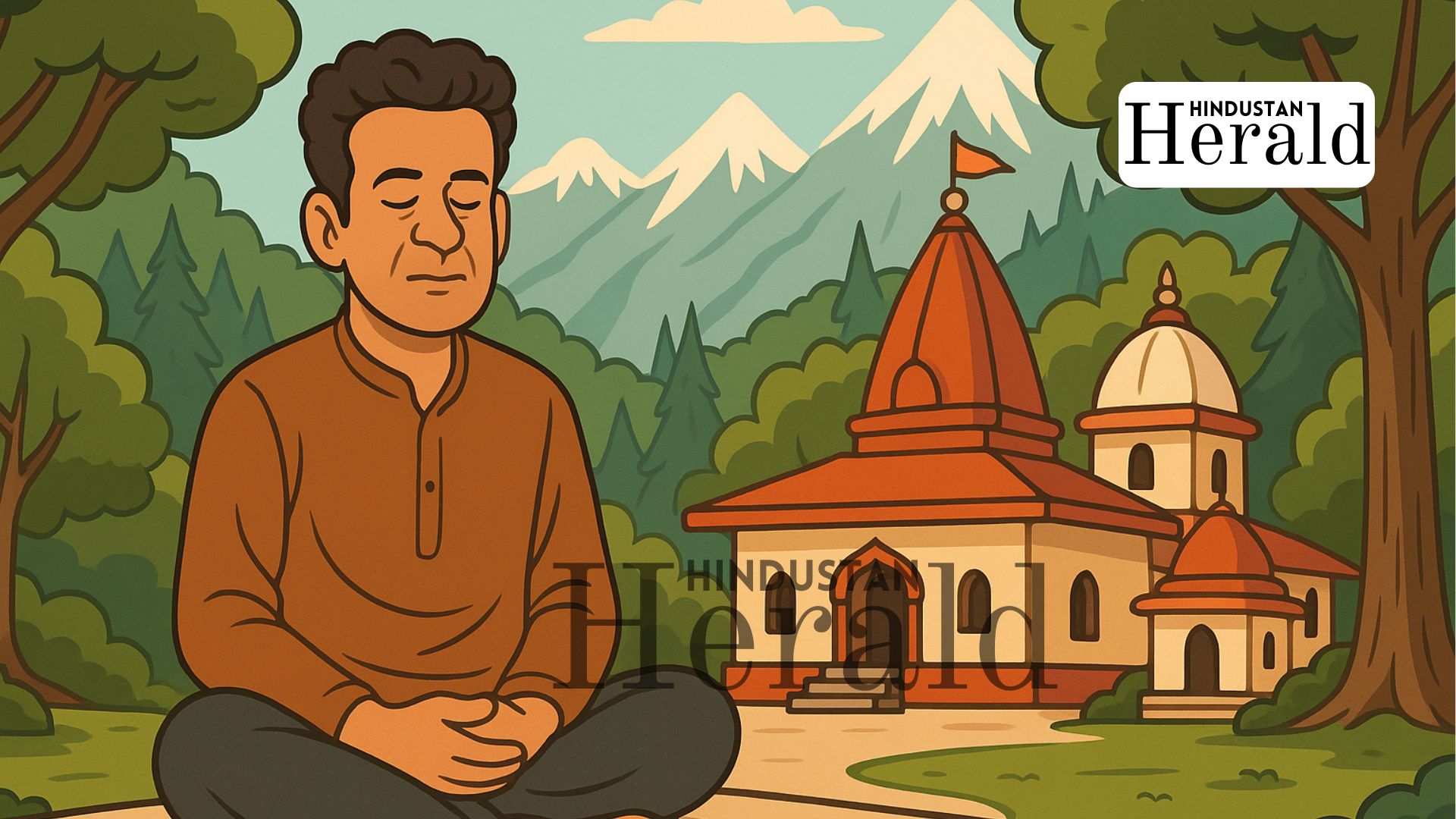New Delhi, September 15: Manoj Bajpayee has never been one to chase the usual Bollywood noise. His career has always moved at its own rhythm, and now he’s revealed that part of that rhythm was found in the quiet hills of Uttarakhand. Speaking recently, the actor shared that his visit to Neem Karoli Baba’s Kainchi Dham ashram became a turning point during a restless phase in his life, one that shaped his new film, Jugnuma – The Fable.
For an actor celebrated for his grounded performances, the revelation isn’t just personal color. It opens a window into how deeply his craft is tied to lived experience.
A Long Pause Before A New Role
After finishing The Family Man, Bajpayee says he did something unusual for an actor in demand: nothing. For nearly a year, he stayed away from the sets. By his own admission, the time wasn’t peaceful. He was restless, caught in a churn between projects, unable to decide his next step.
It was during this pause that he made the trip to Kainchi Dham, an ashram already famous for drawing in seekers from Silicon Valley to Bollywood. The stay gave him what he described as “stillness,” a reset, and a reminder to step back from the industry’s unending hustle.
And it seems that sense of quiet fed directly into Jugnuma – The Fable, a film that thrives on silences and symbolism as much as it does on dialogue.
Spiritual Lessons On Screen
In his conversation with The Economic Times, Bajpayee stopped short of calling Jugnuma a spiritual film. But he made it clear that his own headspace going into the project was transformed. “I didn’t work for a year,” he said, adding that he could only say yes to Jugnuma once he had let go of the weight he was carrying.
That release is visible on screen. Bajpayee’s role in the film marked by pauses, restraint, and a kind of quiet depth feels like an extension of the calm he found at the ashram. In a way, the performance is less about theatrical highs and more about inhabiting a state of being.
The audience may not know the backstory, but they feel it.
A Subtle Shadow Over The Family Man
Interestingly, Bajpayee hinted that his time at Kainchi Dham may have brushed against his work in The Family Man too. The series, which turned him into a household name well beyond cinephiles, is usually read as a blend of espionage and middle-class family life. But as Bajpayee put it, there was something in the balance between Srikant Tiwari’s chaos and his quiet moments that may have been influenced by his own journey towards calm.
He was careful not to overstate the link. This wasn’t about the script or character notes, just an actor drawing from what he had lived through.
The Ashram’s Strange Pull
Kainchi Dham has always had a mystique. Founded by Neem Karoli Baba in the 1960s, it has drawn an unlikely mix of pilgrims from tech giants like Steve Jobs and Mark Zuckerberg to ordinary seekers who arrive by word of mouth. Over time, the place has become a kind of spiritual waypoint for those in search of clarity, whether about business, life, or art.
By acknowledging its impact, Bajpayee places himself in that long line. But unlike a tech founder looking for vision, his testimony is about something subtler the craft of performance, the ability to sit still enough to let a character breathe.
Why It Matters Beyond One Film
There’s a larger story here about where Bollywood finds itself today. Audiences are shifting. The industry is more fragmented and more competitive, and actors are under greater pressure to reinvent. Against that backdrop, Bajpayee’s willingness to step away, to admit to struggle, and to talk about finding peace at an ashram is unusual.
It also raises a quiet question are today’s performers more open than before about needing spiritual or personal grounding to sustain their careers? Bajpayee’s honesty suggests they might be.
For Jugnuma – The Fable, his journey adds an unexpected layer of meaning. Viewers aren’t just watching a performance; they’re seeing the residue of a year spent searching for calm. Whether the film succeeds commercially or not, Bajpayee has already marked it as a milestone in his life.
And that, perhaps, is what makes his story resonate not as a promotional line, but as the portrait of an actor who found his way back to the screen by first walking away from it.
Stay ahead with Hindustan Herald — bringing you trusted news, sharp analysis, and stories that matter across Politics, Business, Technology, Sports, Entertainment, Lifestyle, and more.
Connect with us on Facebook, Instagram, X (Twitter), LinkedIn, YouTube, and join our Telegram community @hindustanherald for real-time updates.
Covers films, television, streaming, and celebrity culture with a focus on storytelling trends.






